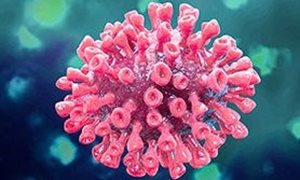 A malaria vaccine with genetically weakened parasites does not cause malaria in healthy volunteers.
A malaria vaccine with genetically weakened parasites does not cause malaria in healthy volunteers.
Read more about the first clinical trial here.
Robert Sauerwein in the media, watch the video here (only in Dutch).
Related news items

Rebecca Halbach receives idea generator grant to fight mosquito transmitted viruses
8 July 2020Rebecca Halbach and Pascal Miesen have investigated in a collaborative project whether the treatment of mosquitoes with antiviral drugs can prevent the transmission of mosquito-transmitted viral diseases.
go to page
Invasive fungal infections in influenza and COVID-19
8 July 2020 The Aspergillus fungus is found in the lungs of many COVID patients. A parallel occurs with influenza patients, who often develop a serious fungal infection. Although such a serious fungal infection seems to occur less frequently in COVID-patients, alertness remains necessary, go to page
First clinical trial with genetically modified malaria vaccine completed
22 May 2020 In an innovative study, Radboudumc and LUMC jointly tested a candidate vaccine based on a genetically weakened malaria parasite. The results of this clinical trial, published in Science Translational Medicine, show that the vaccine is safe and elicits a defense response against a malaria infection. go to page
New step in the development of a vaccine against malaria
22 May 2020 A new vaccine based on rodent malaria parasites achieved a 95% reduction in infection of the liver in humans. An international consortium publishes the results in Science Translational Medicine. go to page
Stuttering DNA orchestrates the start of the mosquito’s life
9 April 2020 A certain type of junk DNA that is found in mosquitoes and which repeats itself dozens of times, known as ‘satellite DNA’, has now been shown to play an essential role in the early development of mosquito embryos. Ronald van Rij and colleagues published their findings in Nature. go to page
NWO Open Competition Domain Science - XS grant for Ronald van Rij and Jenny van der Wijst
21 January 2020NWO Domain Science has awarded Ronald van Rij, theme Infectious diseases and global health and Jennny van der Wijst, theme Renal disorders an XS grant. The XS category emphatically strives to encourage curiosity-driven and bold research involving a relatively quick analysis of a promising idea.
go to page